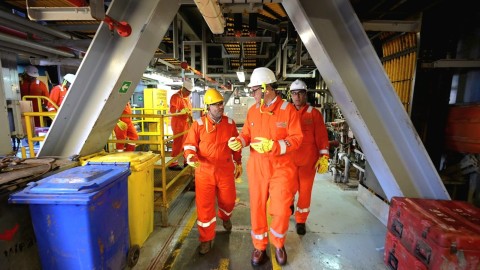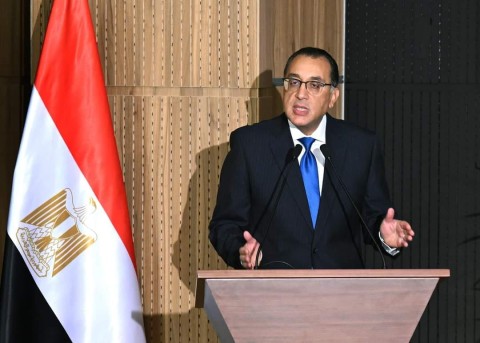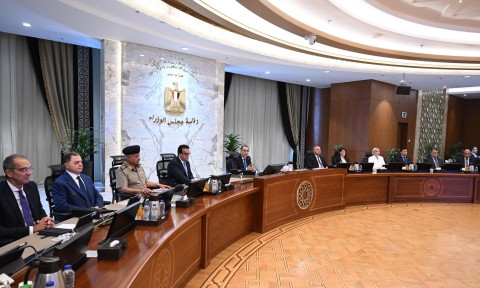As 2011 dawned, BP was desperate to turn the page. For nine months, the crisis-stricken oil major had been weathering the US fallout from the Deepwater Horizon disaster, which killed 11 workers and caused the largest oil spill in history.
BP had lost almost half its value on the stock market. Questions lingered as to whether the business could recover.
Bob Dudley, a soft-spoken, Mississippi-raised executive, had been propelled to chief executive in the wake of the crisis. He was determined to scotch such talk. If his US countrymen appeared to have it in for BP, he knew there were other powerful forces in the energy world more forgiving.
Dudley had run BP’s Russian joint venture for years and knew better than anyone the risks and rewards in the booming hydrocarbon superpower. On 14 January, the BP boss agreed a bold share swap deal with Putin’s state-controlled Rosneft.
It was a deal that stunned the business world, revealing BP’s determination to reinvent itself with a new centre of gravity to the east. It was again perceived as a global force on the world stage, and its shares hit their highest level since the disaster.
Environmentalists, though, were infuriated. Once at the vanguard of efforts to migrate to a low-carbon world “Beyond Petroleum”, BP was now hitching its wagon to Putin’s controversial state-controlled oil giant, a business racing to dominate fossil fuel riches beneath Arctic — and dismissive of western climate change warnings.
Whatever climate change rhetoric might have been aired before or since, this was serious. In BP’s hour of need, like so often before, the British government sprung forward with its official blessing.
“You cannot move to a low carbon economy overnight,” said the then energy minister Chris Huhne after the hastily arranged signing ceremony on that damp, dark Friday evening at BP’s head office in London’s St James’s Square. “This is a very key British player which happens to be a fundamental part of almost everybody’s pension fund.”
“BP, as we all know, is coming out of a difficult period in its history. This partnership shows BP is very much open for business.”
Yet it was only three years since Dudley had fallen out spectacularly with the Russian establishment, fleeing Moscow in the face of what he claimed was “sustained harassment” and going into semi-hiding.
Leaked US diplomatic cables revealed how Dudley had been whispering to American officials, accusing Igor Sechin, Putin ally and Rosneft boss, of supporting a “black PR” campaign against him. Another US cable recorded many observers “believe [Sechin] was behind … attacks on TNK-BP”. TNK-BP was the BP joint venture Dudley had run.
The eventual BP-Rosneft tie-up was to be cast on slightly altered terms than initially planned — BP sold its Russian joint venture and took cash and a 19.75% stake in Rosneft. But this was the UK giant pointing to its future.
When Vladimir Putin was asked why he had chosen to link up with a company so recently tainted by the Gulf of Mexico disaster, he reached for a suitably muscular Russian proverb: “One man who’s been beaten is worth two who haven’t.”
In Washington, there was outrage. “BP once stood for British Petroleum. With this deal, it now stands for Bolshoi Petroleum,” spluttered Ed Markey, senior Democrat on the House of Representatives’ natural resources committee.
And for climate change campaigners, BP’s sharp tack towards Russia was a double blow. The company was falling in with arguably the world’s most ruthlessly expansionist fossil fuel group, set on dominating oil production in the Arctic. And, back in America, activists detected an abrupt fall in the appetite for discussions about global warming.
“Deepwater Horizon gave free licence to everybody in the industry to return to their comfort zone, which is: how do we fix and prevent operational disasters?” said one experienced activist investor with a long relationship with BP. “I would find myself saying: ‘Can we be clear that this hasn’t distracted you from the more long-term process of realigning the business?
’ And you would just get blank looks.”
BP told the Guardian that safety had been “the absolute priority of both BP and … shareholders” following the disaster. Its position on climate change was “clear and consistent”.
But if environmentally-minded shareholders were noticing changes at BP, this paled next to concerns over the attitude of the group’s new Russian partner.
Sechin, who also serves as Russia’s deputy prime minister, earlier this year brushed aside warnings from top international scientists, insisting the world was regularly subject to “climate change cycles”. He said: “Those cycles repeat every 30 million years, so everything is normal.”
Chairing Rosneft’s strategic planning committee is Nicolai Lavernov, the 85-year-old vice-president of the Russian Academy of Science and a former Soviet deputy prime minister. A distinguished geologist, he has previously advised the Kremlin to be weary of international initiatives that were exaggerated, alarmist and might constrain Russia from exploiting its carbon assets. “I can very clearly see a sort of damp-down on countries with petroleum potential,” he told prime minister Dmitry Medvedev in 2009 ahead of the UN climate change summit in Copenhagen.
Another member of the nine-strong Rosneft board is polar explorer Artur Chilingarov, best known for leading a three-man submarine mission to plant a Russian flag underneath the north pole in 2007. “The Arctic is Russian,” he said at the time. “We must prove the north pole is an extension of the Russian coastal shelf.”
Chilingarov was awarded the title of Hero of Russia for his exploits.
According to Rosneft’s latest filings on sustainability, which relate to 2013, the company “has not yet assessed the implications of climate change for its activities”. Such an assessment was planned, but the results may not be published until 2016.
Rosneft told the Guardian it had established a working group “to improve corporate accounting and reporting for greenhouse gas emissions, as well as to provide cooperation with governmental agencies and public organisations in the area of greenhouse gas emissions.”
Source: The Guardian












